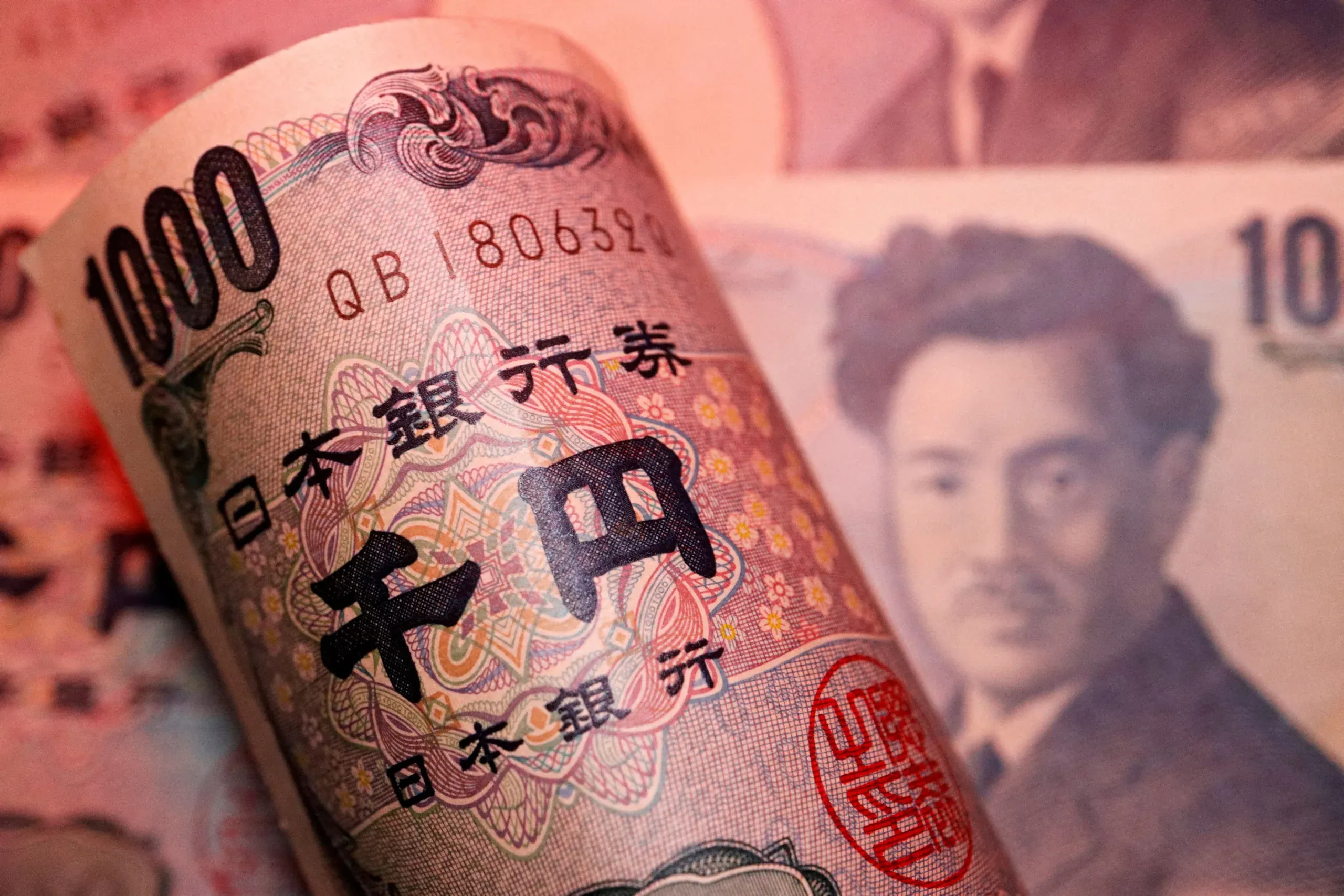
SINGAPORE (Reuters) -The yen fell to an over one-month low on Friday after the Bank of Japan (BOJ) stood pat on rates and said it would trim bond buying in the future, while the euro, mired in political turmoil, was headed for a weekly loss.
Defying market expectations, the BOJ said at the conclusion of its two-day policy meeting it would continue to buy government bonds at the current pace and would only lay out details of its tapering plan for the next one to two years at its July policy meeting.
Markets had expected the central bank to announce a reduction of its massive bond purchases this month, following various media reports in the lead up to Friday’s decision.
The yen slumped roughly 0.6% to 157.99 per dollar, its weakest in more than a month.
“It is a surprise that no decision was made on the reduction of bond purchases this time,” said Hirofumi Suzuki, chief FX strategist at SMBC.
“At the next meeting, the BOJ said it would decide on a specific plan for the next one to two years. Therefore, it is considered that the result was somewhat dovish.”
Other currencies also extended gains against the Japanese currency, with sterling scaling a 16-year high of 201.45 yen. The euro was last up 0.57% at 169.56 yen.
In the broader market, the dollar was on the front foot, helped by gains against the euro and safe-haven bids as France’s snap vote call stoked fears of political uncertainty in the country and the wider euro zone bloc.
Sterling edged 0.1% lower to $1.2750 and looked set for a weekly gain of 0.3%.
The Aussie eased 0.17% to $0.6626, while the New Zealand dollar slipped 0.28% to $0.6151.
However, the two Antipodean currencies were on track to rise roughly 0.8% and 1% for the week, respectively, owing to expectations that rates there could remain higher for longer and as a run of U.S. economic data this week revived the chance of earlier rate cuts from the Federal Reserve.
Data on Thursday showed the number of Americans filing new claims for unemployment benefits increased to a 10-month high last week while separate data pointed to producer prices unexpectedly falling in May, adding to bets the Fed could kick off its easing cycle in September.
The figures followed Wednesday’s U.S. inflation reading which showed consumer prices were unexpectedly unchanged in May.
While the Fed, at the conclusion of its monetary policy meeting this week, struck a more hawkish tone than expected and projected only one rate cut for 2024, investors chose to focus on the softer-than-expected data instead, which has in turn sent Wall Street charging to record highs and Treasury yields falling. [US/]
“The Fed has changed its mind multiple times on its expected policy path, so we don’t put much weight on its new set of projections – and Powell himself said he didn’t ‘hold it with high confidence’, emphasizing the Fed’s data-dependent approach,” said Jean Boivin, head of the BlackRock Investment Institute.
“No matter the forward-looking statement from the Fed, incoming inflation surprises – in either direction – will likely continue to lead to large revisions to the policy outlook.”
The dollar index was steady at 105.33.
POLITICAL JITTERS
The euro last bought $1.07355 and was poised for a weekly loss of roughly 0.6%.
The single currency has had a turbulent week in the wake of French President Emmanuel Macron’s decision on Sunday to call a snap vote in his country, which spooked investors.
That came after France’s far right pummelled Macron’s party in the EU parliament election.
Against the British pound, the euro languished near a 22-month low and was staring at a weekly decline of 0.9%.
Similarly, the common currency held near its weakest level in over five months against the Aussie and in six against the kiwi.
“Although Macron’s announcement came as a surprise, there is a possibility that new elections could work in his favour. However, the likelihood of this scenario is quite low. It is more probable that Macron’s political standing will diminish, albeit not to the extent of preventing him from establishing a new government,” said Erik-Jan van Harn, senior macro strategist at Rabobank.
“Macron’s party suffered a substantial setback in the European elections, and unfavourable results in the upcoming elections could exacerbate concerns regarding the sustainability of the country’s debt.”
(Reporting by Rae Wee; Editing by Shri Navaratnam, Sonali Paul and Kim Coghill)


